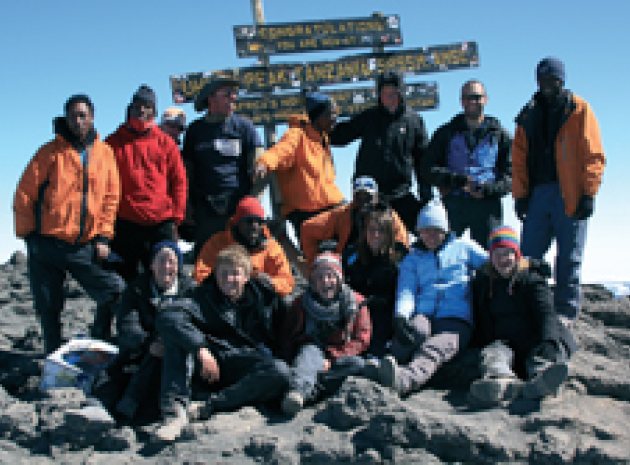Recently I found myself in the uncomfortable position of having to choose between attending a wedding reception or taking my habitual place on our Year 7 PGL trip. Travelodge’s non-refund policy swung it eventually and I enjoyed a lovely evening in Bristol catching up with good friends. But passing the M4 turn-off for Liddington the next morning there was a twinge of sadness at missing out, because there’s something special about the school trip. The opportunity to see your students in a different environment, to interact with young people you don’t usually teach, and to see different individuals shine in different ways is a remarkable privilege. The bigger and more ambitious the trip, the greater the impact on the students, and (let’s not ignore it) the greater the payback for you.
I’ve stood on the summit of Kilimanjaro, heard the last post at the Menin Gate, sat in an Austrian casualty department waiting for the results of students’ X-Rays (and my own, I should add), and spent innumerable days in Disneyland trying to get the dastardly earworm from ‘It’s a Small World’ out of my head, all surrounded by students who are truly being transformed by their experiences. If your school isn’t running extended trips abroad, you should be looking into it. From a long weekend at the winter markets, to skiing in half term, all the way to a month-long expedition in a developing world country, these opportunities will help turn your charges into young adults, and you can be part of that process too, especially if you bear a few tips, learnt through experience, in mind...
First, you need to understand the commitment you are making. Perhaps, like me, you’ll get to feed your long-standing simian obsession (Really? Just me?) by laying on an expedition to Borneo, but be aware that you’ll also have to spend days of your life standing at the supermarket checkout packing shopping for tips, to help the students raise the funds to go. Plus the weekend training walks, the evening fund raisers and the huge chunk out of your holiday all need to be factored in. Commit to the project with the same gusto you want from your students. And don’t think that the shorter trips will be a breeze either; for a week’s skiing you’ll need to add in parents’ meetings, training sessions at your local ski slope if you can, and reams and reams of paperwork (don’t get all Clarkson about it, it’s there for a reason) – but it will all be worthwhile when you see participants reunited with their parents afterwards, gushing enthusiastically about their new experiences.
Secondly, if you can, pick your own team. It’s not going to be a holiday and you need people who understand that and will step up accordingly. You’re probably all going to end up sleep deprived and tempers can fray if someone’s not pulling his or her weight, or showing suitable initiative in dealing with issues. Pick the people who have demonstrated the right levels of commitment in school and you won’t be disappointed out of school.
Thirdly – and perhaps most controversially – you should consider banning the mobile phone. My opinion may be tempered by a 24-hour coach journey being subjected to a selection of three songs being played through a particularly tinny sounding speaker, but it’s also down to the potential chaos an exaggerated text could be causing back home. The tumble on the ski slopes has become multiple broken bones; the car that drives into the side of the coach becomes a motorway smash; and the group of students who are late to the meeting point are now lost and abandoned in a major European capital city. And the other major advantage of removing that screen from their lives is that the students might just end up looking at something else – perhaps, for example, the things you’ve come to see. They might talk to each other, or the locals, or even… the staff.
Lastly, recognise that you’re potentially part of a life-changing experience for someone. Four years after summiting Kilimanjaro, one of the team posted on Facebook that it was, “the best thing I have ever done and I can remember that no matter how tough things get I got through the hardest challenge of my life so I can get through anything”. And life changers are different for different lives – that student who’s just gone abroad for the first time, the teenager who's never been on a plane before, or even the teacher who just got Mickey Mouse’s signature – they’re going to remember this forever, and if you don’t want to be part of that, then perhaps it’s best that you let someone else go. As long as they don’t have a wedding commitment already.










